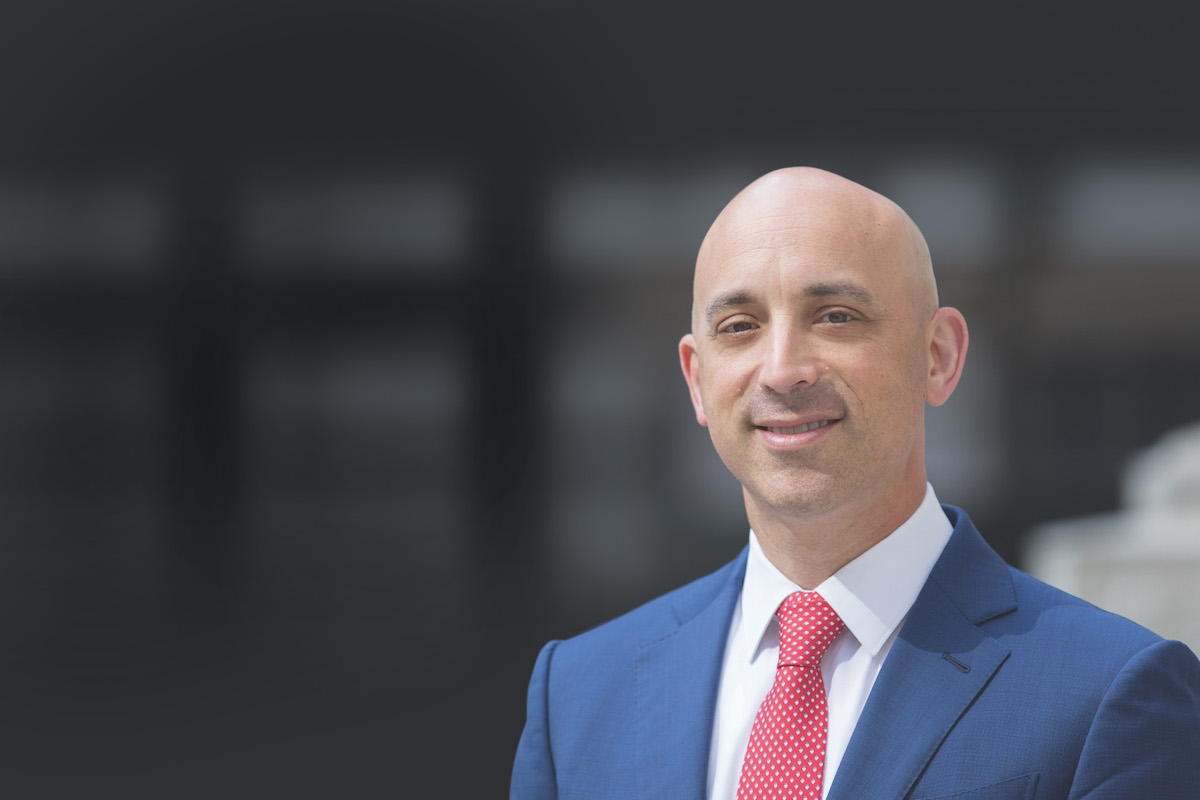Taking Back the Momentum From Conspiracy Theories and Antisemitism
Free UCSB Arts & Lectures Talk Features Jonathan Greenblatt of the Anti-Defamation League

It could happen anywhere.
And according to a new report by the Anti-Defamation League (ADL), it does. In the United States, antisemitic activity reached historic levels in 2022, with a total of 3,697 incidents reported across the country. That’s an increase of 36 percent compared to 2021 — also a record-setting year. What’s more, the ADL noted antisemitic incidents in all 50 states and the District of Columbia.
The ADL Audit of Antisemitic Incidents found, on average, 10 incidents for each day in 2022 — the highest level of antisemitic activity since ADL started keeping records in 1979. This marks the third time in the past five years that the year-end total is the highest number ever recorded.
In his book, It Could Happen Anywhere: Why America Is Tipping from Hate to the Unthinkable—And How We Can Stop It, Jonathan Greenblatt, chief executive and national director of the ADL, the world’s leading anti-hate organization, sounds the alarm about the hate and systemic violence that are gathering momentum in the U.S., and offers insights into how individuals and communities can push back against it.
On May 22, Greenblatt will give a UCSB Arts & Lectures talk titled “Fighting Hate for Good.” The conversation with Greenblatt begins at 7:30 p.m. in Campbell Hall. It is free, though advance registration is required.
In advance of Greenblatt’s talk in Santa Barbara, Dan Meisel, regional director of the ADL Santa Barbara/Tri-Counties, discussed the alarming uptick in antisemitic rhetoric and activity in California and across the country.

According to Meisel, the rise in antisemitic incidents in California parallels the record high numbers nationwide. “Antisemitism tends to rise in times of political division and distrust in public institutions, spurring conspiracy theories,” he said.
California saw a 41 percent jump in antisemitic incidents last year, and though Meisel said the increase cannot be attributed to any one cause or ideology, he cited as contributing factors the greater coordination between antisemitic and white supremacist extremist groups in spreading propaganda; a rise in incidents on elementary, junior high, and high school campuses as students have returned to in-person education following the pandemic; and increased antisemitic vandalism in public places.
“Though most Jewish residents of our area likely feel a strong sense of belonging in our communities,” said Meisel, “our area is not immune to the spread of false conspiracies and tropes about the Jewish people.”
Pushing back against incidents of antisemitism and other forms of bias, requires what Meisel described as “a combination of communal condemnation and meaningful engagement.”
“The broader the condemnation, the better,” he said, “and engagement can range from education about antisemitism and its harmful impacts to reinforcing critical thinking so as to reduce our susceptibility to misinformation. Collective action is most effective, but each of us should speak up individually to check antisemitism when it is safe to do so, and non-Jews can make an effort to learn more about antisemitism and its various forms.”
While acts of physical assault, harassment, and vandalism surged in 2022, other, more subtle forms of bias have crept through society, finding sustenance on social media. “The media and our larger society have been slow to appreciate the extent to which social media algorithms and features designed to increase use and generate revenue have contributed to the spread of hate and misinformation,” he said. “We need to focus on the causal connections between online networking and in-person hateful conduct.”
Additionally, he said, there is a tendency for people to think conduct is not antisemitic if it doesn’t denigrate the Jewish religion. “Judaism is more than religion. It is also shared heritage, ethnicity, culture, traditions, language, and connection to land. Falsely denigrating those elements of Judaism can be antisemitic as well.”
Meisel described antisemitism as the only form of bigotry that combines false assertions of inferiority and all-powerfulness. “The first part is identity bias, while the second part is conspiracy theory. We have seen antisemitic and racist false conspiracy of ‘replacement theory’ migrate from the extreme right towards the mainstream. We are also seeing antisemitic conspiracies historically employed by the far left being normalized as part of advocacy against structural oppression.
“Whether one is claiming that Jews are orchestrating immigration or controlling Hollywood, the mechanism of conspiracy theory is the same,” he continued. “Rather than diving into nuance to research and respond to reality, too many of us are retreating to uninformed echo chambers for comfort, social affirmation, and easily inciteful rhetoric. That is a recipe for bigotry, especially against a small and often misunderstood minority.”
Jonathan Greenblatt, “Fighting Hate for Good,” takes place on Monday, May 22 at 7:30 p.m. at UCSB Campbell Hall. Register for this free event at https://artsandlectures.ucsb.edu/events-tickets/events/22-23/jonathan-greenblatt/




You must be logged in to post a comment.